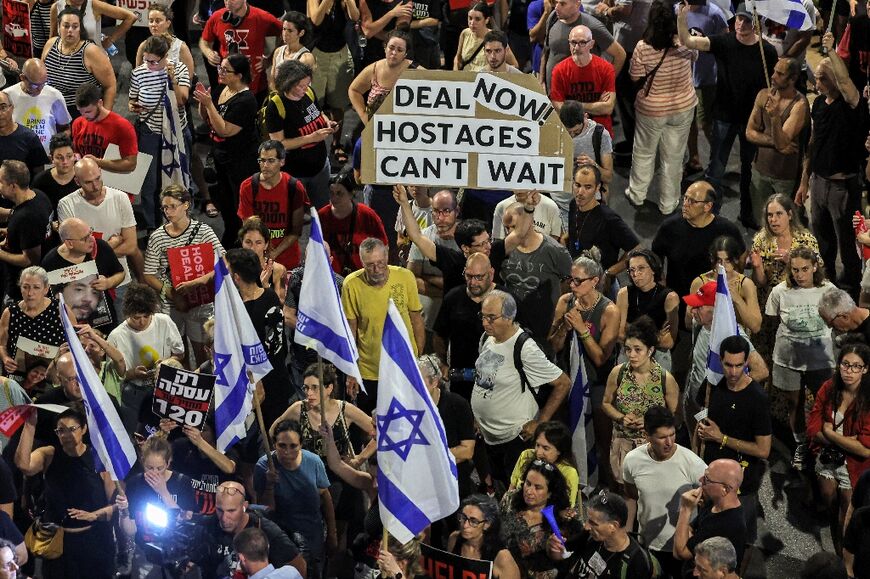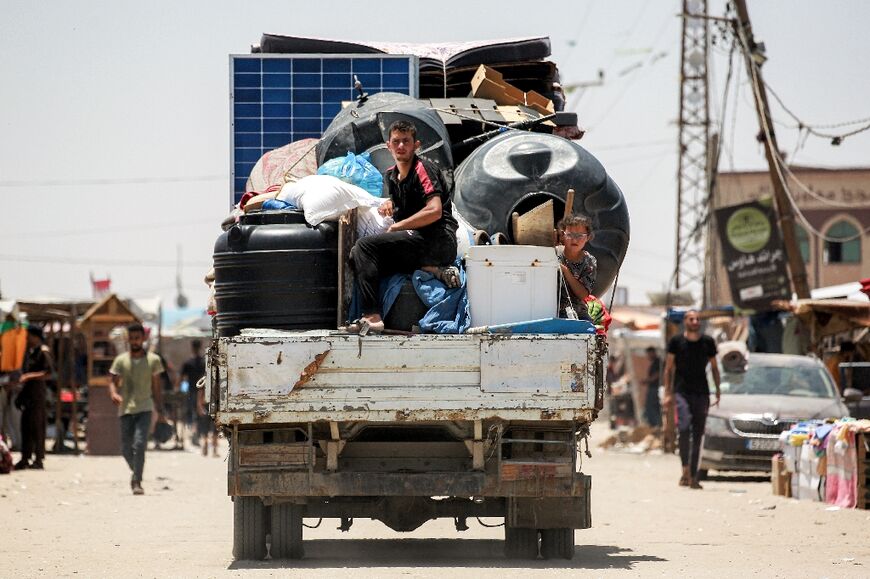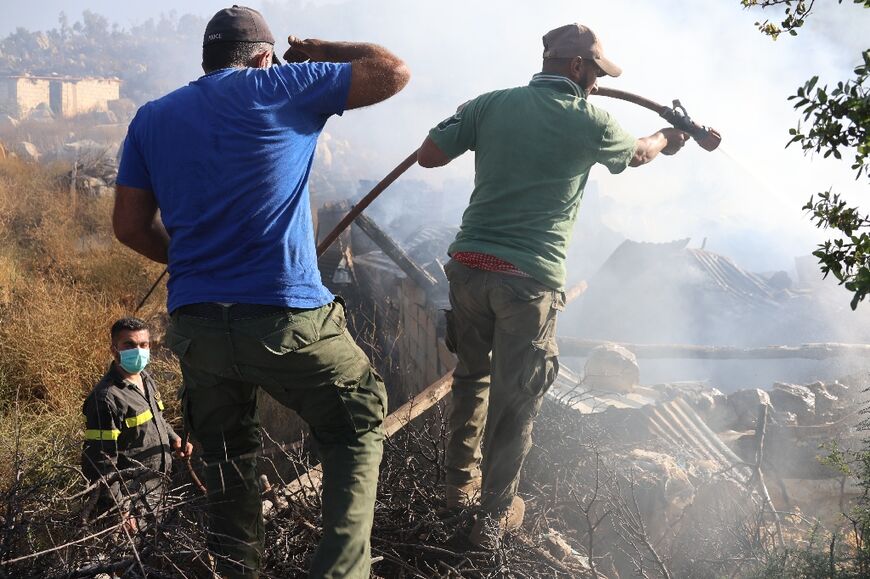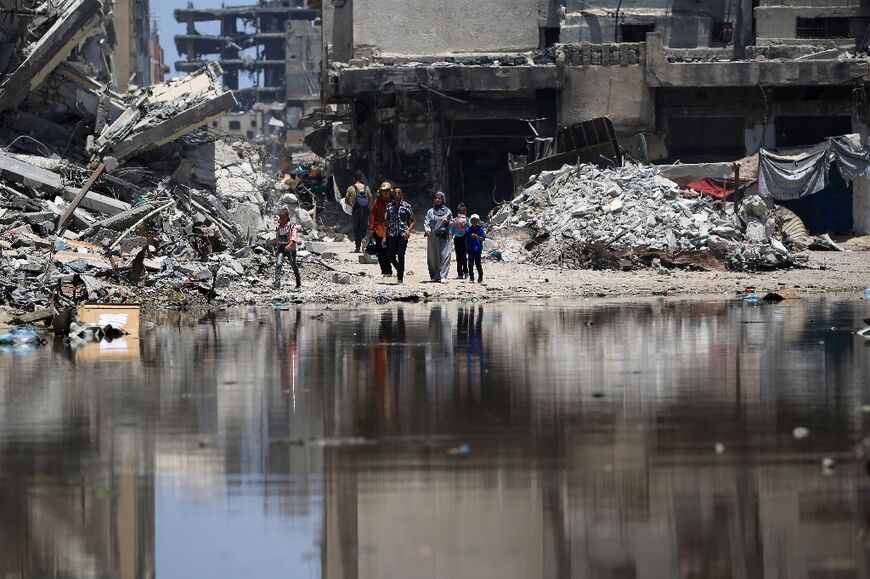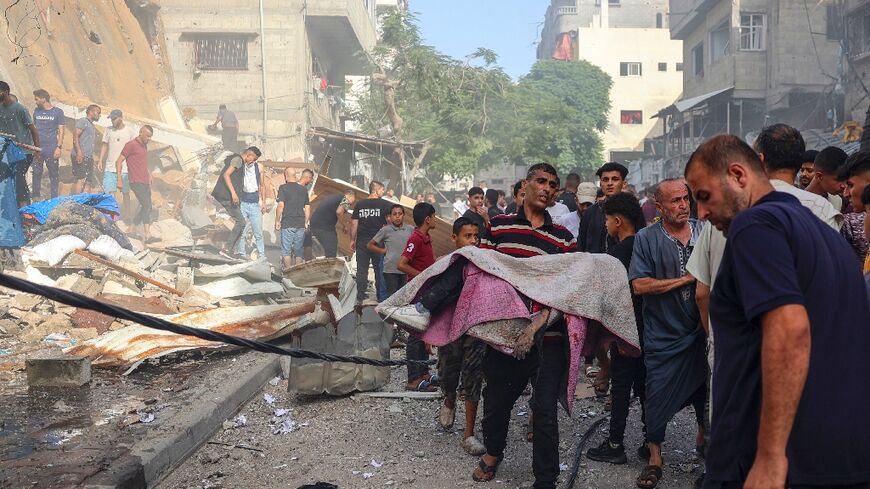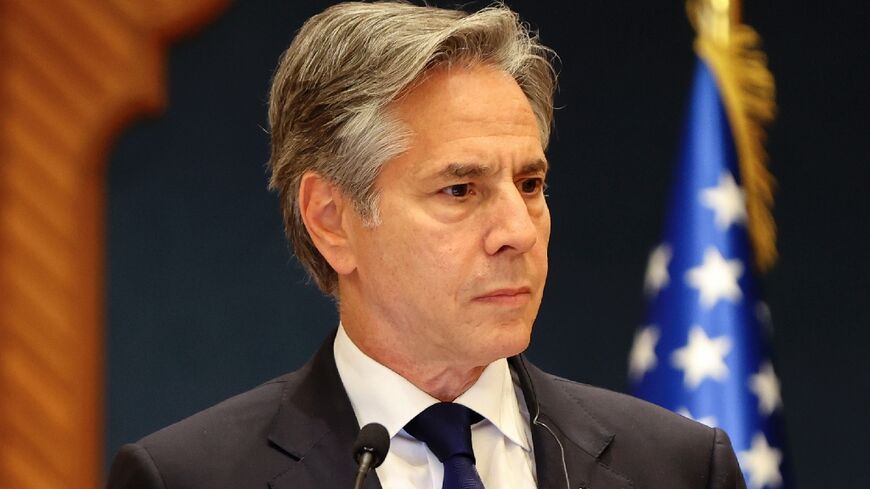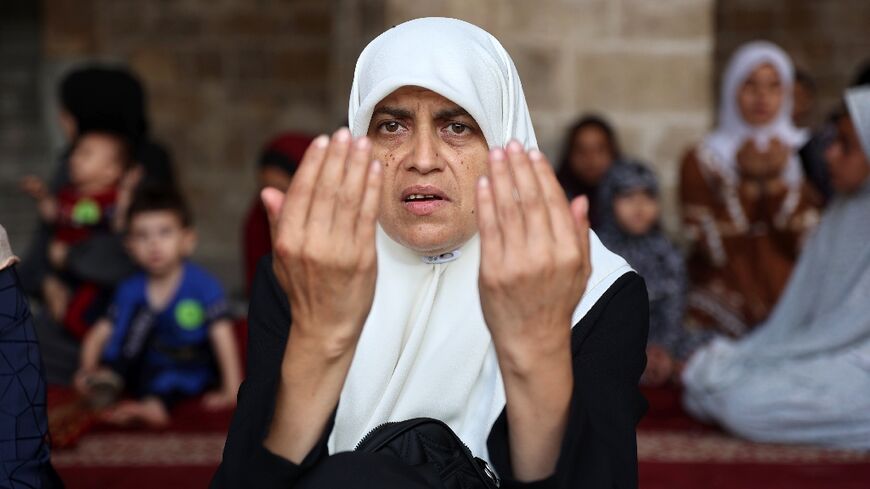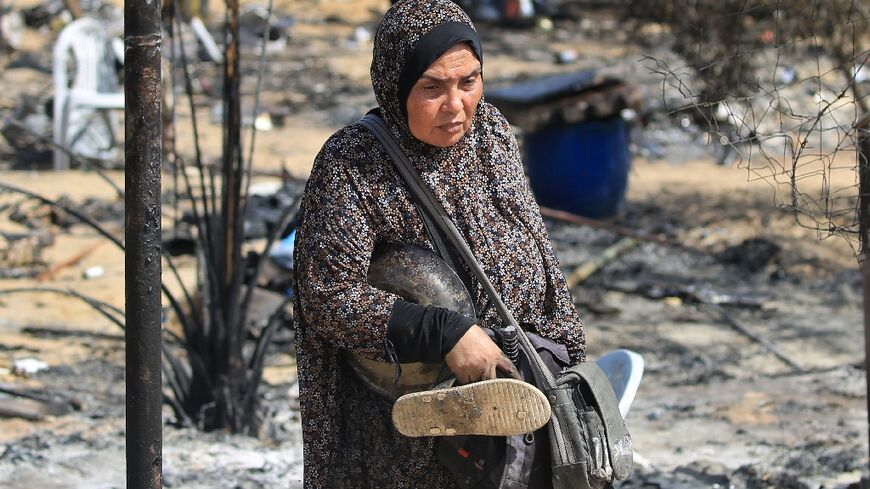Eight Israeli soldiers killed as fighting rages in Gaza

Eight Israeli soldiers were killed in a blast in southern Gaza Saturday, the military said, in one of its heaviest losses of the war, as witnesses reported street battles between troops and Palestinian militants.
The military said the soldiers were killed when the Namer armoured vehicle they were travelling in exploded near Gaza's far-southern city of Rafah, where troops are engaged in fierce street battles.
"There was a very serious damage to the vehicle and those in it, and a large explosion making it difficult to identify and locate the bodies," it said.
Military spokesman Daniel Hagari told a televised briefing that the blast was "apparently from an explosive device planted in the area or from the firing of an anti-tank missile".
Saturday's losses were among the heaviest for the military since it began its ground offensive in Gaza on October 27 and took its overall toll since then to 306 deaths.
In the single largest loss of life for the army, 21 soldiers were killed on January 22 when rocket-propelled grenade (RPG) fire hit a tank near two buildings they were preparing to blow up.
Israeli Prime Minister Benjamin Netanyahu paid tribute to the soldiers who had lost their lives. "Our hearts are shattered before this terrible loss," he said in a statement.
"Despite the heavy and unsettling price, we must cling to the goals of the war."
At the weekly protest in Tel Aviv against his government's handling of the war, protester Graciela Barchilon, 68, said she felt "a lot of anger and disappointment".
"I believe this government is not working and we have to go to elections now," she said.
In Rafah, witnesses reported clashes between militants and Israeli troops in the city's west, and artillery fire towards a refugee camp in the city centre. AFPTV images showed streets largely deserted.
The United Nations says about one million people have fled Rafah since early May, when Israel began ground operations in the city in pursuit of Hamas militants.
In Gaza City, in the north of the territory, the civil defence agency reported recovering 10 bodies from three separate homes hit by Israeli strikes.
- Lebanon border flare-up -
The Gaza war began after Hamas's unprecedented October 7 attack on southern Israel, which resulted in the deaths of 1,194 people, mostly civilians, according to an AFP tally based on Israeli official figures.
The militants also seized 251 hostages. Of these, 116 remain in Gaza, although the army says 41 are dead.
Israel's retaliatory offensive has killed at least 37,296 people in Gaza, also mostly civilians, according to the health ministry in the Hamas-ruled territory.
Fears of the war spilling over into a broader Middle East conflict have been rekindled in recent days by an escalation of tit-for-tat violence between Israel and Lebanese militant group Hezbollah, a Hamas ally.
Hezbollah said intense strikes since Wednesday were retaliation for Israel's killing of one of its commanders.
Israeli forces responded with shelling, the military said, also announcing air strikes on Hezbollah infrastructure across the border.
The two top UN officials in Lebanon called on all sides to cease fire. "The danger of miscalculation leading to a sudden and wider conflict is very real," they said in a joint statement.
- Ceasefire plan -
During a Middle East trip this week to push a Gaza truce plan, US Secretary of State Antony Blinken said "the best way" to help resolve the Hezbollah-Israel violence was "a resolution of the conflict in Gaza and getting a ceasefire".
That has not happened.
Hamas has insisted on the complete withdrawal of Israeli forces from Gaza and a permanent ceasefire -- demands Israel has repeatedly rejected.
Blinken has said Israel backs the latest plan, but Prime Minister Benjamin Netanyahu, whose far-right coalition partners are strongly opposed to a ceasefire, has not publicly endorsed it.
The Gaza war's only truce, one week in November, saw more than 100 hostages released, the Israelis among them in exchange for Palestinian prisoners.
World Food Programme deputy executive director Carl Skau said that "with lawlessness inside the Strip... and active conflict", it has become "close to impossible to deliver the level of aid that meets the growing demands on the ground".
"More than anything, people want this war to end," he said after a two-day visit to Gaza.
The US military said a pier it built to help bring aid into Gaza would be temporarily moved to an Israeli port to protect it from expected high seas.
The platform had only been reattached to Gaza's shore a week before, after storm damage.
Leaders of the G7 group of advanced economies called at a summit in Italy Friday for the "rapid and unimpeded passage of humanitarian relief for civilians in need".
burs-it/kir/jsa


